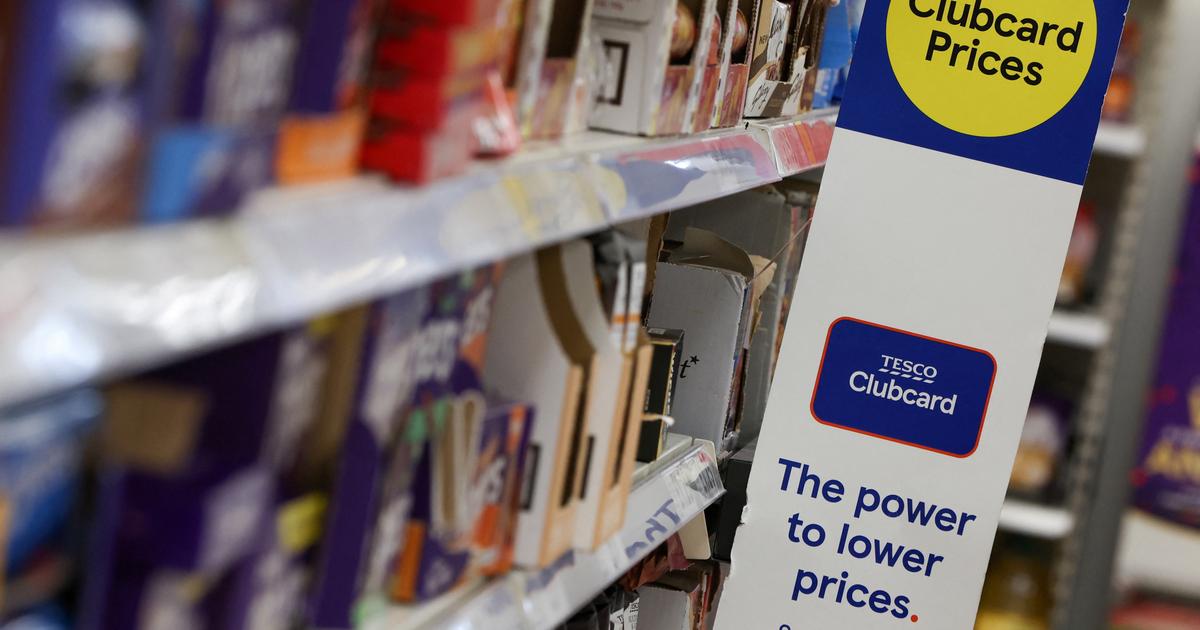Faced with galloping inflation and soaring food prices, British Prime Minister Rishi Sunak wants to offer basic necessities "at the lowest possible price". According to information from the Telegraph, the members of his cabinet are currently negotiating with the main groups of the large British distribution, so that they offer a selection of so-called "essential" products capped at a maximum price. Either a kind of "anti-inflation basket".
Clearly inspired by the French model, the plan of the tenant of 10 Downing Street would be to launch "an anti-inflation quarter" in supermarkets in the United Kingdom, which would choose themselves the products concerned by a price freeze. A solution of last resort in this country, where food prices rose by 19.1% during the year until April, an almost record level in the country. "Inflation is out of our control," a senior government official confirmed to the Telegraph, who is concerned about the success of this project in the face of opposition from supermarkets.
A dreaded return to the 1970s?
But at this stage, there is no question of imposing anything on distributors, who are also standing up against the project. In a statement, the British Retail Consortium (BRC) - supported by Tesco, Sainsbury's, Morrisons and Waitrose - assured that Rishi Sunak's proposal "would make no difference to the purchasing power of households" and accused the prime minister of "returning to the price controls of the 1970s". At that time, the government, then led by Prime Minister Edward Heath, had, in order to cope with inflation, decided to freeze the prices of large distribution products, wages and rents. Without success.
And fears are rife on all sides: some fear that small shops will lose customers to large supermarkets, the only ones able to reduce their prices, while others are already anticipating a phenomenon of "empty shelves", with the fear of possible shortages. "The highly competitive food market in the UK has helped keep prices in the country among the most affordable of any major European economy," said Andrew Opie, the BRC's director of food and sustainability, adding that "the government should instead focus on bureaucratic and administrative simplification to free up enough resources to keep prices as low as possible."
It remains to be seen whether these discussions - which are still in their infancy - lead to this project that the British government assures is still "under study". This would at least reinforce the policy of Rishi Sunak - described as "desperate" by the British tabloids - while he carries at arm's length the objective of halving inflation, to keep it around 5%, by the end of 2023. An ambition shared by his Finance Minister, Jeremy Hunt, who reaffirmed Friday on the Sky News channel that his economic priority was the fight against inflation, "even at the cost of a recession" in the United Kingdom.
Asked about the further tightening of interest rates by the British central bank, in the wake of figures indicating a slowdown in inflation in April less marked than expected, Jeremy Hunt regretted that inflation is such a "source of instability". Before launching, ready to draw an interventionist policy: "ifwe want (...) growth and reduce the risk of recession, we need to support the Bank of England (BoE)."









/cloudfront-eu-central-1.images.arcpublishing.com/prisa/PWWJZJX4RNHDPFBDM57S7RFHGQ.jpg)